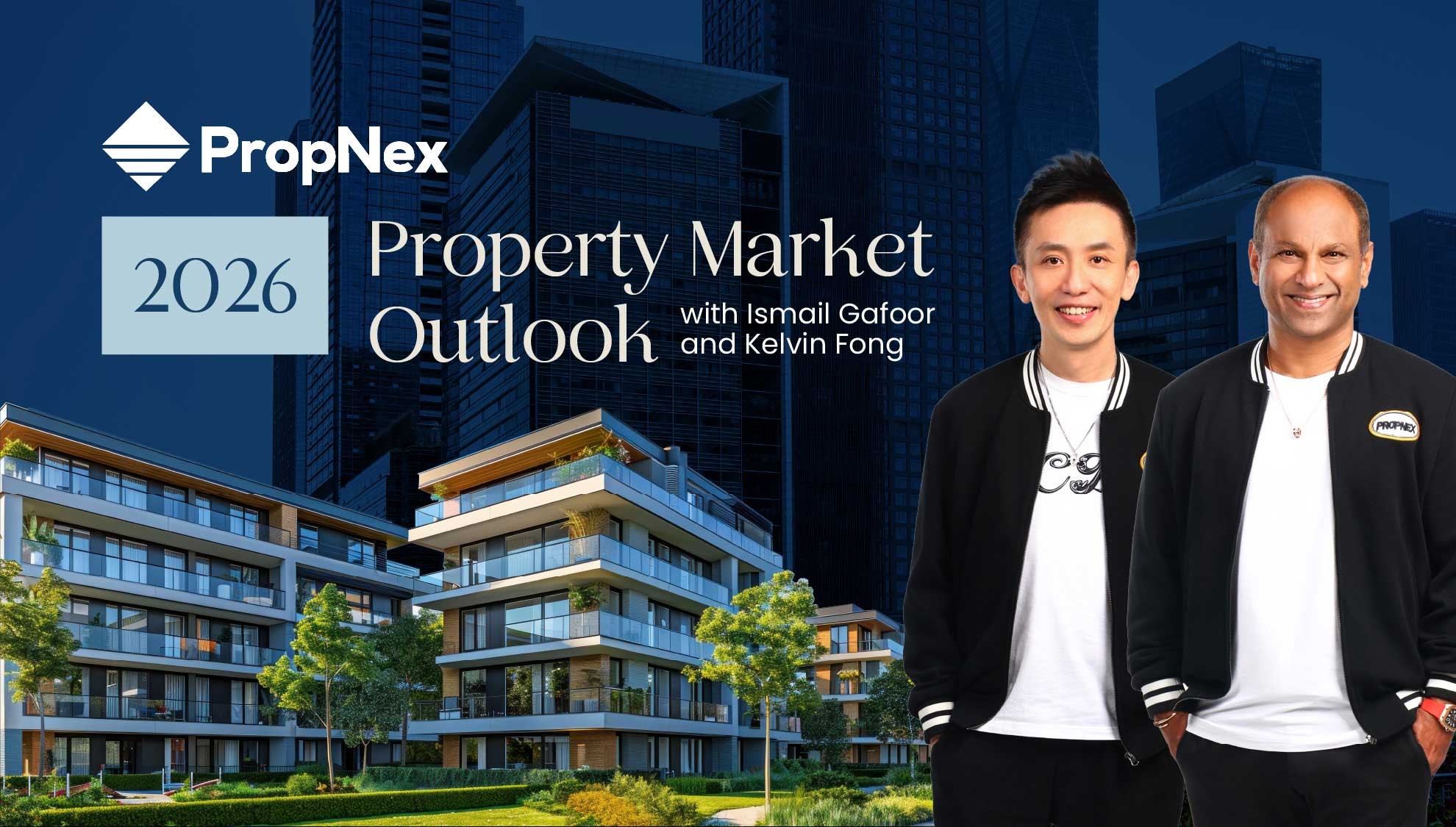Executive Condos: The Goldilocks Zone of Singapore Housing?

Singapore's housing market is like a buffet - there is something for everyone. At one end, you have HDB flats, affordable but with limitations, and at the other, private condos dripping in luxury but carrying a higher price tag. In between lies the often-overlooked Executive Condominium (EC), a housing option that offers a sweet spot between affordability and exclusivity. Like Goldilocks' porridge, ECs are "just right" for many aspiring homeowners.
ECs blend the best aspects of public and private housing, making them a compelling option for middle-income families, also known as the sandwiched class. They offer modern amenities, such as swimming pools and gyms while remaining more affordable than private condos. This unique positioning has made ECs a popular choice for young couples and families. But what exactly makes ECs the golden child of Singapore's housing? Let us dive deeper.
ECs are a distinctly Singapore innovation, designed to bridge the gap between public housing (HDB flats) and private condominiums. They were introduced in 1995 to cater to the "sandwich class"; households that earn too much to qualify for HDB subsidies but find private properties out of reach. This hybrid housing model has since evolved into a key feature of Singapore's housing market, blending the affordability of public housing with the exclusivity and amenities of private condominiums.
What makes ECs so appealing is their affordability during the initial purchase. At their core, ECs start off as public housing (5 years MOP). They are developed and sold by private developers but are subsidised by the government, making them more affordable than private condominiums - approximately 30% to 50% lower than comparable private condos. For example, as of writing, the average price psf of a new EC hovers around $1,484, which is significantly lower than the $3,860 psf or more for comparable private condos.
New launch comparison of ECs and Condos
ECs offer the same perks as private condos, including full-suite facilities, such as swimming pools, gyms, and landscaped gardens. However they come with restrictions that ensure they remain accessible to middle-income families.
Only Singapore citizens and citizen-PR households can buy an EC directly from the developer, and the combined household income cannot exceed $16,000. Foreigners are not allowed to buy them at this stage. Singles can only buy resale or privatised ECs individually, or new ECs under the Joint Singles Scheme (JSS) with another Singapore citizen.
The true magic of ECs lies in their dual-phase nature. After 10 years, ECs become fully privatised and can be sold to foreign buyers, shedding all the restrictions associated with public housing. This transformation often leads to a sharp increase in value, making ECs a compelling long-term investment.
Case study #1: The Canopy - TOP 14 January 2014
Unit type | Area (sqft) | Date of purchase | Purchase (PSF) | Purchase (Price) | Date of sale | Sale (PSF) | Sale (Price) | Profit (PSF) | Profit (Amount) | Holding period |
3BR | 1,173 | Nov 2010 | $648 | $760,000 | 12 Sep 2024 | $1,134 | $1,330,000 | $486 | $570,000 | 13y 9m 21d |
2BR | 1,055 | Dec 2010 | $652 | $688,000 | 13 Sep 2024 | $1,135 | $1,196,800 | $483 | $508,800 | 13y 9m 4d |
Source: Investment Suite
ECs have earned their moniker as the "Goldilocks Zone" because they strike a near-perfect balance between affordability, luxury, and exclusivity. Here is how they excel on multiple fronts:
Affordable luxury
ECs deliver a private condo lifestyle at a much lower cost. Buyers enjoy premium facilities, such as infinity pools, fully-equipped gyms, tennis courts, and even private function rooms. For instance, a typical 3-bedroom EC unit costs about $1.3 million, compared to $1.8 million or more for a similar unit in a private condo development. This affordability makes ECs a practical choice for young families and aspiring homeowners.
Great investment potential
ECs are often seen as an investment goldmine. Historically, many ECs have appreciated significantly once they hit their 10-year privatisation mark. A study found that ECs can increase in value by up to 50-70% after privatisation. For instance, ECs like RiverParc Residence and Blossom Residences saw their resale prices surge post-privatisation, providing owners with substantial returns.
Case study #2: RiverParc Residence TOP 19 June 2014
Unit type | Area (sqft) | Date of purchase | Purchase (PSF) | Purchase (Price) | Date of sale | Sale (PSF) | Sale (Price) | Profit (PSF) | Profit (Amount) | Holding period |
4BR | 1,346 | Sep 2011 | $714 | $961,000 | 28 Oct 2024 | $1,420 | $1,910,000 | $706 | $949,000 | 13y 1m 9d |
3BR | 990 | Oct 2011 | $684 | $677,280 | 02 Oct 2024 | $1,404 | $1,390,000 | $720 | $712,720 | 12y 11m 23d |
Source: Investment Suite
Case study #3: Blossom Residences TOP 5 September 2014
Unit type | Area (sqft) | Date of purchase | Purchase (PSF) | Purchase (Price) | Date of sale | Sale (PSF) | Sale (Price) | Profit (PSF) | Profit (Amount) | Holding period |
3BR | 1,087 | Aug 2011 | $709 | $771,000 | 30 Sep 2024 | $1,297 | $1,410,000 | $588 | $639,000 | 13y 1m 8d |
4BR | 1,249 | Sep 2011 | $708 | $884,000 | 18 Oct 2024 | $1,309 | $1,635,000 | $601 | $751,000 | 13y 1m 6d |
Source: Investment Suite
Exclusive yet accessible
While ECs offer the exclusivity of gated developments with fewer units compared to HDB flats, they remain accessible to middle-income families due to government subsidies. This blend of exclusivity and accessibility makes ECs a practical yet aspirational choice for families looking to upgrade their living standards.
If you are buying ECs for the first time, you are eligible for family grants of up to $30,000 (Singapore citizen households) and $20,000 (Singapore citizen-PR households), as well as half-housing grants of up to $15,000 if one half of the applicant is a Singaporean applying for the first time and the other applicant is a second-timer who has enjoyed a housing grant before.
Family-oriented design
ECs cater to family living with spacious layouts and family-friendly facilities. Many are located near reputable schools, childcare centres, and community amenities, making them ideal for young families seeking a long-term home.
While ECs have plenty to offer, they are not without their drawbacks. The primary downside is the initial restrictions that come with purchasing an EC. Buyers must meet strict eligibility criteria, such as being part of a Singaporean household and not exceeding the $16,000 income ceiling. These restrictions may exclude some aspiring homeowners who do not meet the criteria, especially singles.
Additionally, ECs are subject to a 5-year Minimum Occupation Period (MOP) during which the unit cannot be sold or rented out in its entirety. This means buyers need to be committed to living in their EC for at least five years, which may not suit those seeking flexibility or shorter-term investments.
By the time the EC reaches its 10-year maturity and is privatised, they enter the open market, facing competition from newer private launches. These newer projects often feature cutting-edge designs, smart home technologies, and better locations. As a result, older ECs may struggle to compete in terms of market appeal.
Finally, while not everybody will have the same sentiments as me, some might think that ECs lack the same prestige as private condominiums due to several reasons: 1) ECs being subsidised by the government. 2) ECs are often marketed as "stepping stones" for HDB upgraders, rather than a luxury product. 3) ECs are technically "public housing-turned-private" after 10 years. As such their status is not as prestigious as private condominiums. *This is purely my opinion and mine alone! So, bash me but don't bash the company!*
Executive Condominiums are a perfect fit for a specific group of buyers - Singaporean households. Like I mentioned at the start, ECs are a distinctly Singapore innovation, designed for middle-income Singaporeans. These households earn between $14,000 and $16,000 and often find themselves ineligible for HDB flats yet find private condos too expensive. They benefit from the affordability of ECs while enjoying the exclusivity and facilities associated with private housing.
As such, families upgrading from HDB flats who desire private condo amenities but want to stay within a reasonable budget will find ECs particularly appealing. With the affordability plus the added grants, ECs provide an excellent opportunity to enjoy a better lifestyle without overextending their finances.
Owners with a long-term perspective also stand to gain significantly from ECs. The sharp appreciation in value after privatisation makes ECs a smart choice for those who are willing to wait, as we can see in the graph below.
Resale comparison of ECs and Condos across Singapore
Historical data also shows that resale prices of ECs often rival those of private condos in the same area, giving owners the potential for strong returns. For instance, let us take a look at district 19 (Hougang, Punggol, Sengkang). It is a popular area among young families with many condo and EC developments. We can see in the graph below that the price gaps between resale ECs and condos have been getting smaller over the years, proving that privatised ECs hold significant resale values.
Resale price gap between ECs vs Condos in D19
The demand for ECs in Singapore has remained consistently high, thanks to their unique value proposition. Recent launches like Lumina Grand in Bukit Timah and Novo Place in Tengah have seen overwhelming responses, with some projects achieving more than 60% sales within weeks of their launch. This reflects the enduring appeal of ECs among middle-income families and young couples.
Beyond affordability, this trend also highlights the evolving demand of the current generation of buyers, particularly first-time homeowners, who are not just seeking a functional roof over their heads but also aspiring to a home that supports a modern lifestyle. Many younger buyers prioritise amenities, well-designed spaces, and community living - qualities that ECs deliver, bridging the gap between HDB flats and private condominiums.
Even as Singapore's housing market evolves, ECs are expected to remain a key segment. With new EC launches planned in Tengah (Novo Place), Bukit Batok (Lumina Grand), and Tampines (Aurelle of Tampines), buyers will continue to have opportunities to tap into this lucrative and practical housing option.
Executive Condominiums have cemented their place as the "Goldilocks Zone" of Singapore housing by offering the perfect balance between affordability and luxury, exclusivity and accessibility, practicality and investment potential. They are a solid choice for families seeking a long-term home with top-notch facilities or investors looking for properties with strong appreciation potential.
While ECs come with certain restrictions, their long-term benefits far outweigh these limitations for most buyers. If you're looking for a home that's "just right," an EC could be your ideal solution. Ready to explore your options: resale or new launch? Let PropNex help you navigate the world of ECs and find the perfect match for your needs. Contact us today to learn more!
Views expressed in this article belong to the writer(s) and do not reflect PropNex's position. No part of this content may be reproduced, distributed, transmitted, displayed, published, or broadcast in any form or by any means without the prior written consent of PropNex.
For permission to use, reproduce, or distribute any content, please contact the Corporate Communications department. PropNex reserves the right to modify or update this disclaimer at any time without prior notice.














